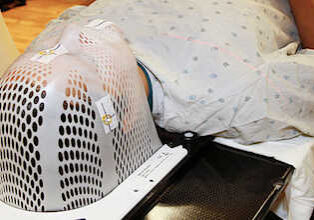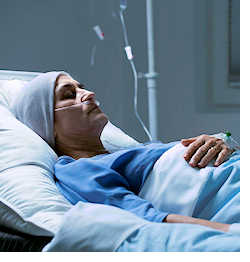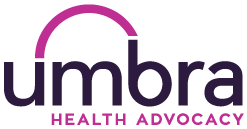Cancer and COVID-19: A Guide

With thanks to advocate and guest blogger, Claire Thevenot.
“COVID cancer sucks,” my client said.
She discovered a cancerous lump in her breast a couple of weeks ago and has had to go through the many initial appointments amid the chaos, isolation, and uncertainty of COVID-19. As if a cancer diagnosis isn’t daunting enough, dealing with cancer in a pandemic setting is especially frightening and challenging. If you’ve received a recent cancer diagnosis or are undergoing treatment, you may be wondering how the virus might affect you. As a patient advocate, I’m here to demystify the reality of coronavirus for cancer patients.
As a Cancer Patient, Am I More Susceptible to COVID-19?
Cancer patients are generally considered at higher risk of contracting COVID-19 because they often have weakened immune systems due to the disease process itself or because of the toxic effects of treatment. In addition, they are at risk for more serious complications from the virus. Two recent studies, one out of Wuhan, China, and one out of New York City, compared a sample of COVID patients with cancer to COVID patients without cancer. Both studies found that those with cancer were more likely to experience severe complications such as pneumonia, ICU admission, mechanical ventilation, and death. In the Chinese study, patients with hematological cancer, lung cancer, or stage-IV cancer were at the highest risk. Other factors shown to increase likelihood of complications include recent surgery or immunotherapy or other co-morbidities like lung disease, obesity, heart disease, diabetes, or advanced age.
Early data suggests that patients who have a history of cancer but are not currently undergoing treatment are also at increased risk of severe complications, although experts are still trying to quantify that risk.
Along with physiological factors, cancer patients may be coping with additional stressors related to the pandemic. The general fear of contracting COVID is compounded by having more contact with the healthcare system. On top of that, worries over diagnosis or treatment delays and the possibility of a loss of income or insurance coverage given current events can cause even more stress, further exacerbating vulnerability.
How Can I Minimize My Risk of Contracting Coronavirus?
The goal of patients and their families regarding coronavirus should be prevention. It’s as simple as diligently following the guidelines that apply to everyone else:
- Practice social distancing
- Wash hands frequently
- Avoid touching your face
- Wear a mask in public
- Disinfect frequently used surfaces
- Avoid those who are sick or might have been exposed
The American Cancer Society recommends delaying routine screenings such as mammograms or colonoscopies at this time. Patients are not, however, to delay screening where cancer is suspected. In these cases, follow the advice of your doctor.
What Should I Do if I’m Exposed to or Display Symptoms of COVID-19?
It is important not to show up at your provider’s office without contacting them first. Those on active treatment should call their oncologist right away. Those not on active treatment are encouraged to call their primary care doctor.
How Might My Treatment Change as a Result of the Coronavirus Outbreak?

Efforts to staunch the spread of coronavirus have fundamentally changed how the health care system operates, which will likely affect how your treatment is conducted. It’s important to be aware of the changes so you can know what to expect and plan accordingly.
Providers are taking measures to limit staff and patient exposure to others. Your doctor may choose to conduct your appointment via telehealth if no treatment is planned. Clinics are also requiring staff and patients wear masks and performing pre-screening activities prior to appointments. In addition, treatment areas are being re-arranged to allow for more space between patients. Unfortunately, many hospitals and physicians’ offices are also reducing the number of visitors a patient can have or restricting visitors altogether.
The format of your treatment may change as well. In the same spirit of minimizing exposure, your physician may have you undergo treatments at home where possible, adjust your dosing schedules for in-person visits, and/or change to oral therapies. Time between restaging scans and labs may be increased, and some radiation oncologists may opt for short course or hypo-fractionated radiation over traditional methods. Disappointingly, many patients are finding that their options for clinical trials are slim, as many have been put on hold.
While COVID cancer does suck, a patient advocate can help you navigate your treatment to balance prevention and the best care for you.
Find a Health / Patient Advocate or Care Manager
Learn more about The Alliance of Professional Health Advocates
